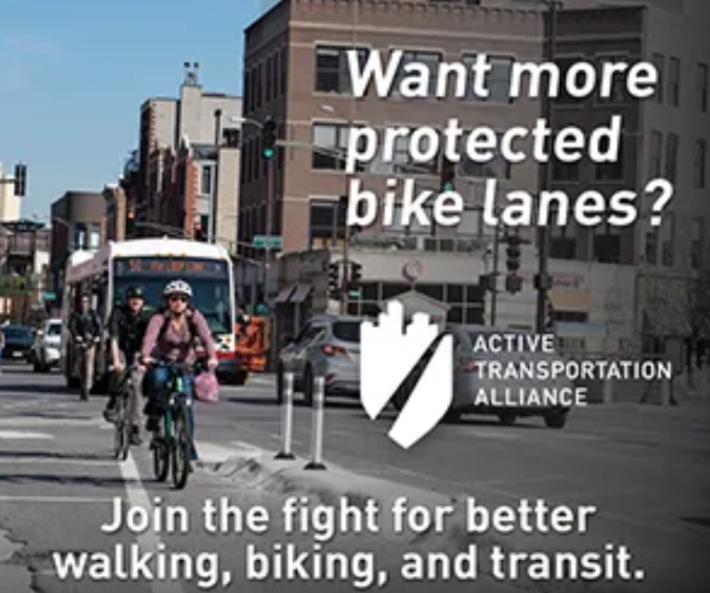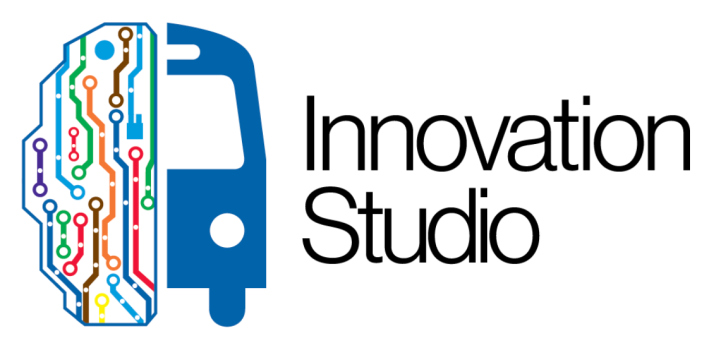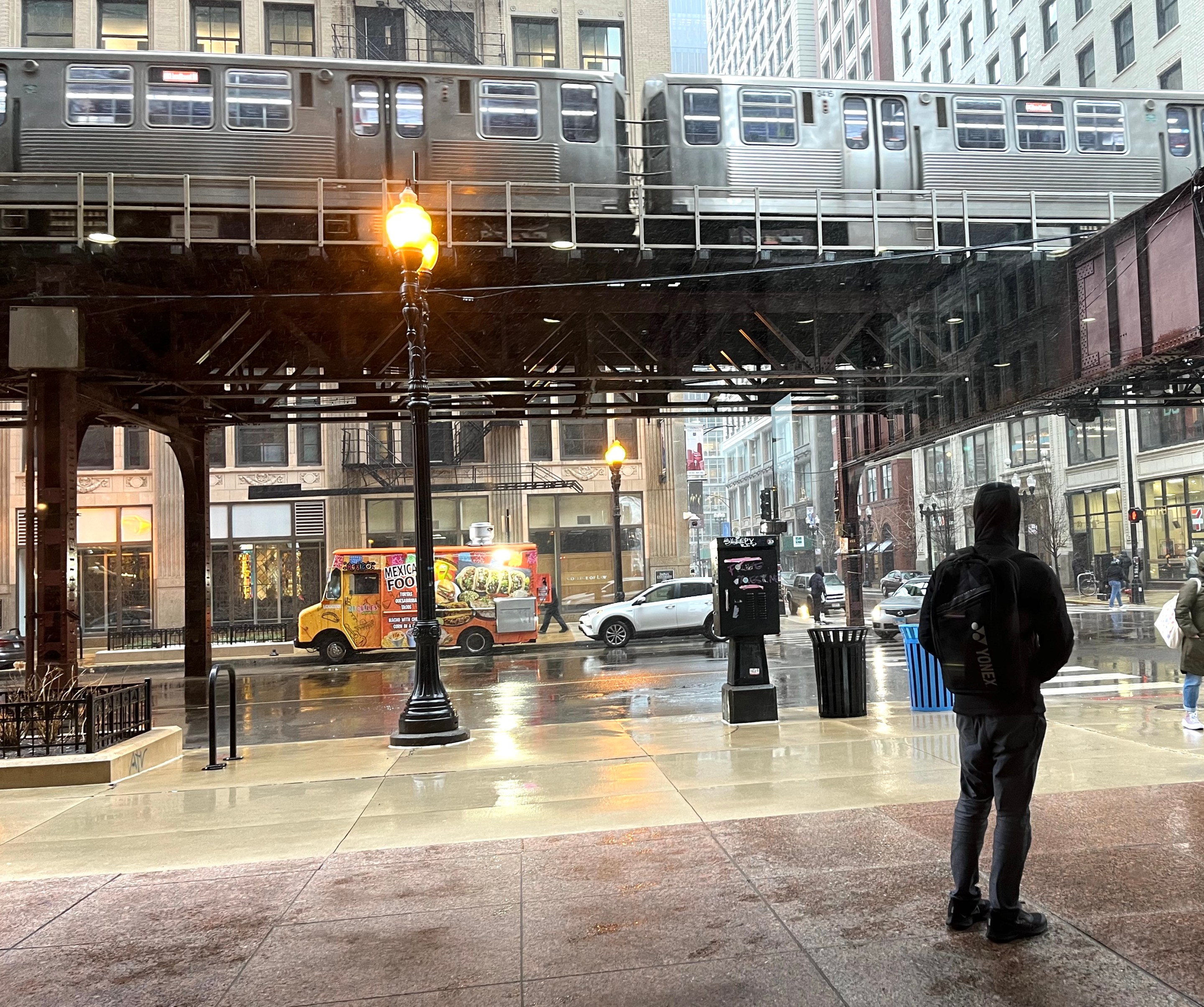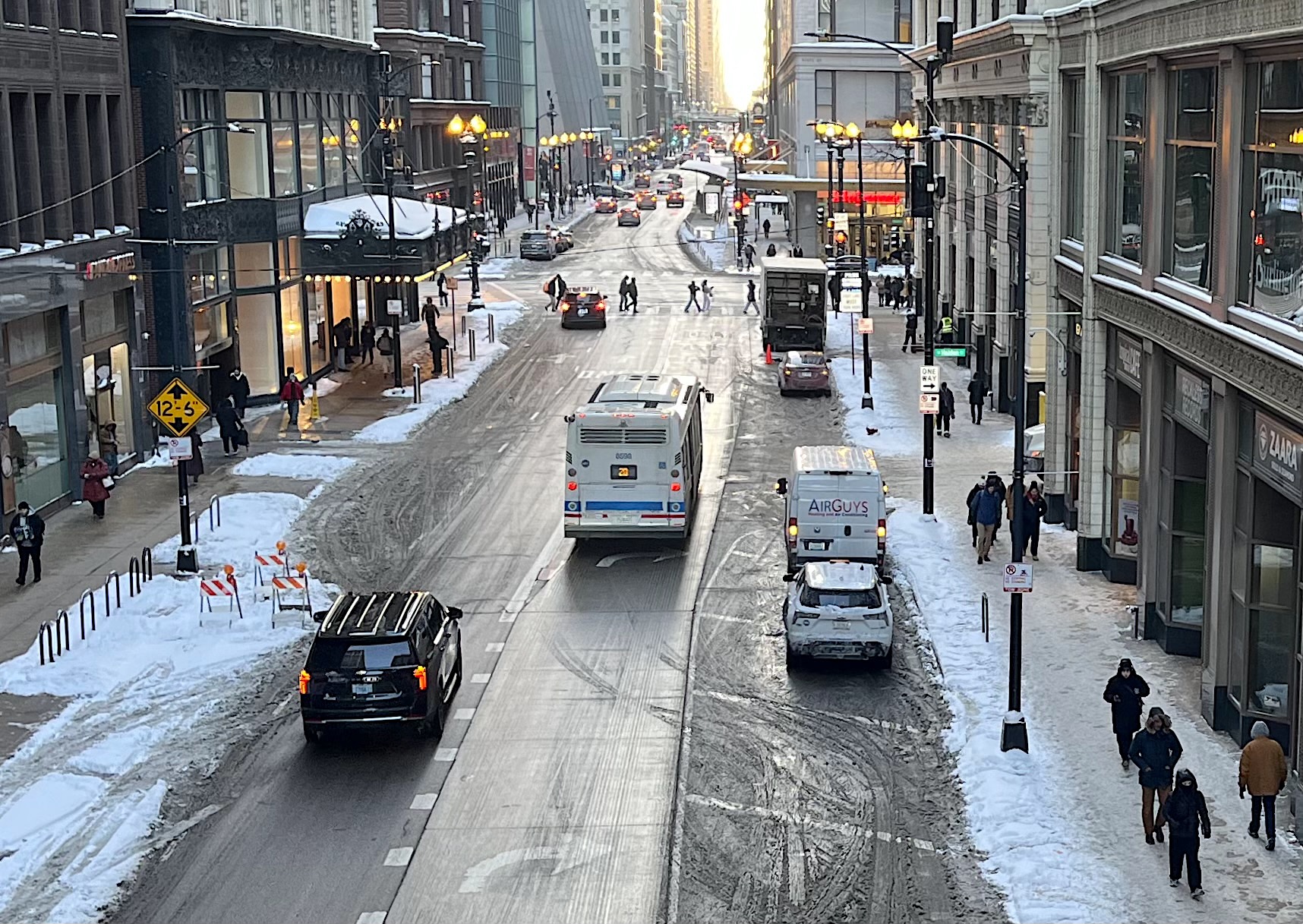
On March 5, the CTA announced it was launching an "Innovation Studio," and looking to partner with private sector entities and "test solutions for improved system safety, asset management and real-time information at bus stops." Last Monday the transit agency held a virtual info session about the project.

"The Innovation Studio provides a means of accelerating our efforts to address a variety of challenges affecting our day-to-day operations, ranging from our number one priority of safety, to the customer experience and operational efficiencies," said embattled CTA President Dorval R. Carter. Jr. in a statement. "And the first operational efficiency we are realizing with the launch of this program is the reduction of time it will take for us to begin real-world testing of cutting-edge technologies, which otherwise would take us months or years to bring to a reality."
At the beginning of each year, the CTA is going to announce three problem statements on its website, hopefully opening the door to forward-thinking solutions. After the problem statements are posted, there will be an application period where the CTA will host an info session and accept questions.

"The Innovation Studio is... a unique opportunity at CTA,” said the agency's Chief Planning and Innovation Officer Molly Poppe at Monday's webinar. "It's something we've never really done before. Anyone that's ever done business with CTA or is familiar with doing business with government organizations, it's a very long [Request for Proposals] process, it takes time. We are really trying to develop an agile process for us to identify solutions and bring them to market.”
Here are the three problem statements the CTA has identified for 2024 (their words):
- Rail Safety: Automatic detection of people or large objects on train tracks to avoid collision, and either reduce or eliminate service delays.
- Asset Management: Automate the process of having personnel manually survey the conditions and use of physical assets at more than 10,000 bus stops systemwide.
- Real-time Information: Improve the customer experience through the expansion of real-time arrival and service alert information at bus stops (sheltered and unsheltered) throughout the system.
"Our problem statements are somewhat specific," CTA Operations Innovation Project Manager Paul Black said at the info session. "We wanted to make sure that they were initiatives that we were willing and ready to support and aligned with other CTA goals, while also being things that didn't necessarily have a single clear cut solution so that we could get creative solutions from innovators."

If the technology belonging to a potential trailblazer's company fits the bill for one of the problem statements, then previous transit experience isn’t needed, according to the CTA. Nor does the company need to be based in Illinois. However, an innovator’s firm does still need to be eligible to work in Illinois and be available for the necessary innovation monitoring.
"We want that to be an iterative process and a collaborative process," Poppe said. "We know that innovators are going to bring us new ideas, things that maybe they've never actually tried on a transit system before, maybe they've tried it elsewhere. And they want to try to see if it's going to work in a transit environment. We want those types of ideas."
"So, in terms of eligibility requirements, we're looking for all innovators to submit proposals," CTA Senior Manager of Planning and Innovation Emily Drexler said during the webinar. "So, this includes folks from private sector companies and startups, nonprofits and external agencies as well. However, innovators should be actively equipped to participate in the pilot, including for development, implementation and ongoing operation, as well as final evaluation."

The criteria for each proposal is 40 percent responsiveness, 40 percent feasibility, and 40 percent timeline, according to the CTA. Any proposals that pass Phase 1 will then have to be presented before a panel of CTA subject matter experts, where they will then be graded on 40 percent the specific innovation, 20 percent the team supporting the pilot, 20 percent project management, 10 percent goals and key performance indicators, and 10 percent budget timeline. After that, any proposal that passes will undergo a pilot of up to 12-months, followed by an evaluation to see if a systemwide solution should be pursied.
"We really feel here at CTA that the Innovation Studio is going to be mutually beneficial to CTA and to the areas that have the opportunity to participate," said Drexler. "Innovation Studio creates an expedited system for working with CTA, kind of, like Molly mentioned, and is a great opportunity to interact with transit leaders to pilot your technology on the third largest transit system in the country and help shape the agency's direction with regard to the types of tools and technologies that we choose to scale."
[Until recently, the CTA was the nation's second-largest transit system, Depressingly, last November the American Public Transportation Association announced that Los Angeles Metro, serving a larger but historically much more car-centric city than Chicago, had finally overtaken the CTA for transit ridership. - Ed]
It's #SpotifyWrapped time! In our version of #TransitWrapped, see the U.S. public transportation agencies with the highest ridership between Sept. '23 and Oct. '22.
— APTA (@APTA_info) November 29, 2023
1. @MTA 2.8 Billion
2. @metrolosangeles 280 Million
3. @cta 270 Million
4. @wmata 243 Million
5. @MBTA 239 Million pic.twitter.com/qlIKVZwnTD
If you have any questions about these problem statements, you can submit them via the Innovation Studio website by April 1, April Fool's Day. Submissions, which can also be sent through the website, are due by April 15, Tax Day. After that, the pilot presentations are planned for early June. The final pilot selection will occur sometime in July. The scope and planning period will take place in August, while the pilots themselves will begin in September. Some of those dates may change as the CTA determines the pacing of the pilots.
"We want to make sure that we're expanding that ecosystem of ideas that are available to us," said Poppe. "And also expanding the way that we think about problem solving and the way that we think about bringing solutions to our customers. And when I say customers, I mean both riders and operators... That is about improving the work experience and improving how we manage our program."

Did you appreciate this post? Please consider making a tax-deductible donation to help Streetsblog Chicago keep publishing through 2025. Thank you.






